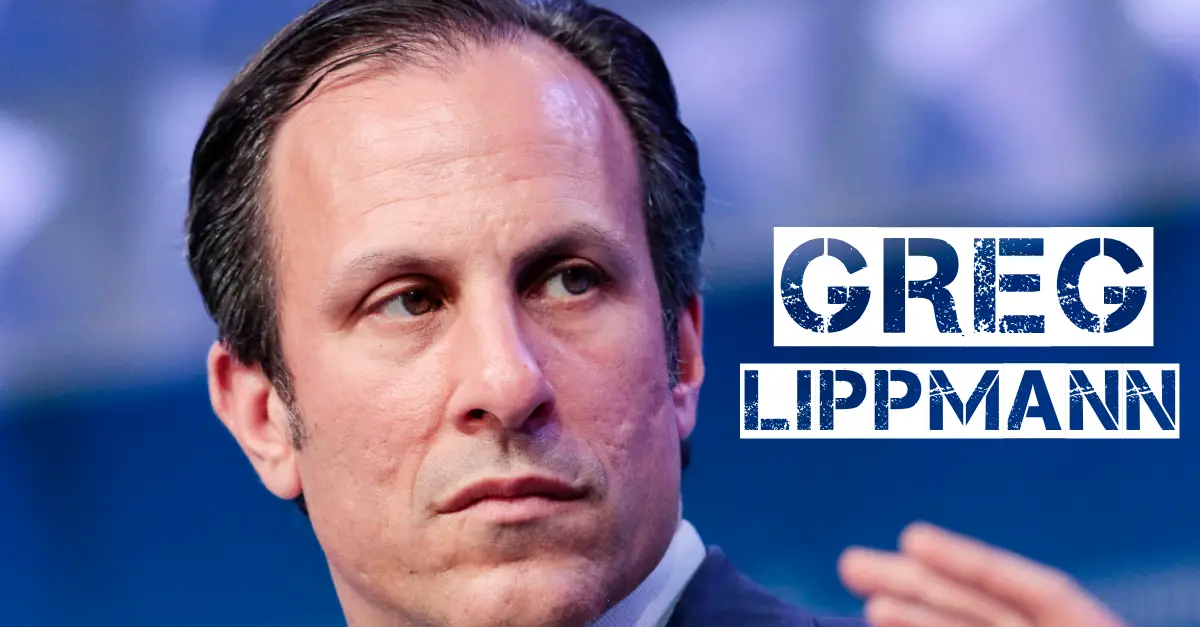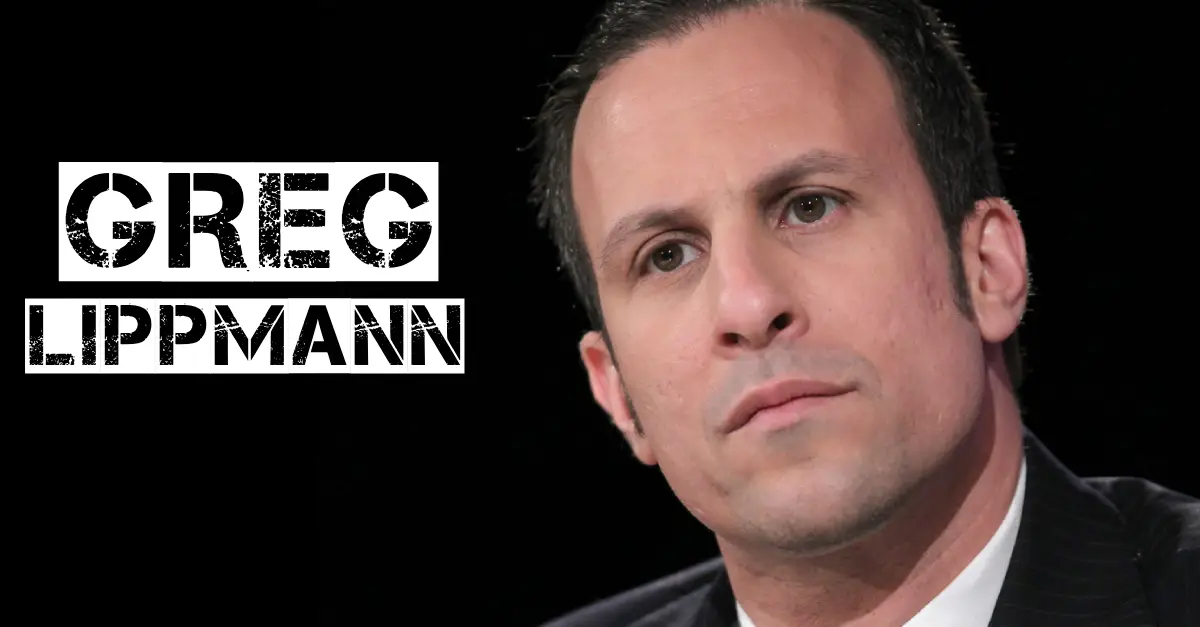Greg Lippmann is a name that resonates powerfully within the financial sector. As a key figure in the subprime mortgage crisis and a protagonist in Michael Lewis’s “The Big Short,” Lippmann’s career is often viewed through the lens of high-stakes trading and market foresight. However, the real reason Greg Lippmann became a trader is far more nuanced and unexpected than commonly believed. This article delves into the lesser-known facets of Lippmann’s journey, shedding light on the motivations, influences, and experiences that shaped his path in the world of finance.
Greg Lippmann Early Life: The Seeds of Ambition
Introduction
Greg Lippmann is a name that resonates powerfully within the financial sector, especially among those who followed the subprime mortgage crisis and the ensuing global economic upheaval. While Lippmann is often recognized for his role in betting against the housing market, the foundation of his ambitious career was laid much earlier. This article explores the formative years of Greg Lippmann, highlighting the experiences and influences that sowed the seeds of his ambition and set him on the path to becoming a renowned trader.
Family Background and Upbringing
Greg Lippmann was born in 1968 into a family that valued education and intellectual rigor. His father, a respected mathematics professor, and his mother, a dedicated teacher, created an environment that encouraged curiosity and learning.
- Intellectual Environment: Growing up in a household where academic excellence was highly valued, Lippmann was exposed to complex mathematical concepts and problem-solving from an early age. His father’s passion for mathematics had a profound influence on him, nurturing his analytical thinking and love for numbers.
- Early Exposure to Financial Concepts: Discussions about economics and finance were common in the Lippmann household. His parents often engaged him in conversations about market trends and economic principles, sparking his interest in the financial world.
Academic Pursuits and Interests
Greg Lippmann academic journey was marked by exceptional performance and a keen interest in economics and finance.
- High School Achievements: During his high school years, Greg Lippmann excelled in mathematics and science. He participated in various academic competitions, consistently emerging as a top performer. These experiences honed his analytical skills and fostered a competitive spirit.
- University Education: Lippmann attended the prestigious University of Pennsylvania, where he majored in economics. His academic record was exemplary, but it was his extracurricular pursuits that truly set him apart. He joined investment clubs and participated in stock market simulations, gaining practical insights into financial markets.
- Summer Internships: To further his understanding of finance, Lippmann secured internships at prominent financial firms during his summer breaks. These experiences provided him with firsthand exposure to the fast-paced world of trading and solidified his desire to pursue a career in finance.
Early Career Choices
After graduating from the University of Pennsylvania, Lippmann embarked on his professional journey with a clear focus on the financial markets.
- First Job at Credit Suisse First Boston: Lippmann’s career began at Credit Suisse First Boston, where he worked as a bond trader. This role provided him with valuable experience in trading strategies, risk management, and market analysis. His analytical skills and attention to detail quickly set him apart from his peers.
- Mentorship and Learning: During his early years at Credit Suisse, Lippmann was fortunate to work under seasoned traders who mentored him and shared their knowledge. These mentors recognized his potential and encouraged him to think critically and challenge conventional wisdom.
The Genesis of a Trader
Lippmann’s early career experiences were instrumental in shaping his approach to trading and risk management.
- Analytical Rigor: His strong mathematical background, combined with his practical experience in trading, enabled him to develop sophisticated analytical models. These models became the foundation of his trading strategies, allowing him to identify market inefficiencies and capitalize on them.
- Risk Management Philosophy: Lippmann’s early exposure to the complexities of financial markets instilled in him a deep understanding of risk. He developed a risk management philosophy that emphasized the importance of thorough analysis and careful planning.
- Strategic Thinking: Lippmann’s ability to think strategically and anticipate market trends set him apart as a trader. He was not content with merely following the crowd; instead, he sought to understand the underlying forces driving market movements and used this knowledge to inform his trading decisions.
Influence of the Dot-Com Bubble
The late 1990s and early 2000s were a period of significant upheaval in the financial markets, marked by the rise and subsequent collapse of the dot-com bubble. Lippmann’s experiences during this period further shaped his approach to trading and risk management.
- Observing Market Mania: As a trader during the dot-com bubble, Lippmann witnessed firsthand the irrational exuberance and speculative frenzy that gripped the markets. This experience reinforced his belief in the importance of rigorous analysis and risk management.
- Learning from the Collapse: The collapse of the dot-com bubble served as a stark reminder of the dangers of speculative trading. Lippmann emerged from this period with a renewed commitment to sound trading principles and a cautious approach to market speculation.

The Road to Deutsche Bank
Lippmann’s growing reputation as a skilled trader and his innovative approach to risk management caught the attention of Deutsche Bank, where he would go on to play a pivotal role in the years leading up to the subprime mortgage crisis.
- Joining Deutsche Bank: In the early 2000s, Lippmann joined Deutsche Bank as a senior trader. His mandate was to develop and implement trading strategies that would capitalize on market opportunities while managing risk effectively.
- Developing Credit Default Swaps: At Deutsche Bank, Lippmann became a leading figure in the development and trading of credit default swaps (CDS). His foresight and innovative thinking enabled him to recognize the potential of CDS as a tool for hedging risk and profiting from market inefficiencies.
Academic Pursuits
Lippmann attended the University of Pennsylvania, where he majored in economics. His academic performance was stellar, but it was his extracurricular activities that began to hint at his future career. He was particularly interested in the stock market, spending countless hours analyzing market trends and honing his skills in financial modeling.
Greg Lippmann: The Wall Street Calling
Introduction
Greg Lippmann’s journey from an academically gifted student to a renowned Wall Street trader is a story of passion, intellect, and strategic foresight. While many are familiar with his pivotal role in the subprime mortgage crisis, the path that led him to Wall Street reveals the depth of his ambition and the influences that shaped his career. This article explores the critical phase of Lippmann’s life where he transitioned from academia to the heart of the financial world, laying the groundwork for his future success.
Academic Foundations
Before making his mark on Wall Street, Greg Lippmann academic journey equipped him with the necessary tools and insights to excel in the competitive world of finance.
University of Pennsylvania
- Economics Major: Greg Lippmann attended the University of Pennsylvania, majoring in economics. His academic performance was exceptional, and he developed a keen understanding of economic principles and financial markets.
- Investment Clubs and Market Simulations: Active in investment clubs and stock market simulations, Greg Lippmann gained practical experience and honed his analytical skills, preparing him for the challenges of real-world trading.
Summer Internships
- Hands-On Experience: During his summers, Greg Lippmann interned at prominent financial firms, where he was exposed to the inner workings of the financial markets. These internships provided invaluable hands-on experience, shaping his understanding of trading strategies and market dynamics.

The First Steps on Wall Street
After graduating from the University of Pennsylvania, Greg Lippmann embarked on his professional journey, eager to apply his knowledge and skills in the real world of finance.
Credit Suisse First Boston
- Initial Role as a Bond Trader: Greg Lippmann first job was at Credit Suisse First Boston, where he worked as a bond trader. This role was a critical learning phase, providing him with exposure to various trading instruments and market strategies.
- Learning the Ropes: Under the guidance of experienced traders, Greg Lippmann developed a deep understanding of market dynamics, risk management, and the intricacies of bond trading. His analytical skills and attention to detail quickly set him apart from his peers.
Building a Reputation
- Analytical Acumen: Greg Lippmann ability to analyze complex financial data and identify market opportunities earned him a reputation as a talented trader. His early successes at Credit Suisse First Boston laid the foundation for his future career.
The Move to Deutsche Bank
Recognizing his potential, Deutsche Bank recruited Lippmann, offering him a platform to further develop his skills and make a significant impact on the financial markets.
Joining Deutsche Bank
- Senior Trader Role: In the early 2000s, Greg Lippmann joined Deutsche Bank as a senior trader. This position provided him with greater responsibilities and the opportunity to lead innovative trading strategies.
- Focus on Credit Default Swaps: At Deutsche Bank, Greg Lippmann became a key figure in the development and trading of credit default swaps (CDS), a financial instrument that would later play a crucial role in his career.
Innovations in Risk Management
- Pioneering CDS Trading: Greg Lippmann foresight and innovative thinking led him to recognize the potential of CDS as a tool for hedging risk and profiting from market inefficiencies. His work in this area established him as a leading expert in CDS trading.
- Strategic Insights: Greg Lippmann strategic approach to risk management and his ability to anticipate market trends set him apart from other traders. His innovations in CDS trading demonstrated his deep understanding of market dynamics and risk assessment.
The Subprime Mortgage Market
As Greg Lippmann career progressed, his focus shifted to the subprime mortgage market, where he would make his most significant impact.
Recognizing Market Flaws
- Early Warnings: Greg Lippmann was one of the first to recognize the flaws in the subprime mortgage market. He identified the growing risk of mortgage defaults and the potential for a market collapse.
- Conviction and Strategy: Driven by a conviction that the housing market was fundamentally flawed, Greg Lippmann developed strategies to profit from the impending collapse. His insights and actions during this period would later be chronicled in Michael Lewis’s “The Big Short.”
The Creation of Credit Default Swaps
- Hedging Against Risk: Lippmann’s work in creating and trading CDS allowed investors to hedge against the risk of mortgage defaults. His innovative use of CDS provided a way to bet against the housing market, positioning him as a key player in the subprime mortgage crisis.
Ethical Considerations and Market Critique
While Lippmann is often associated with the profits made from the subprime mortgage crisis, his motivations were not solely driven by financial gain.
Ethical Concerns
- Transparency and Accountability: Lippmann frequently spoke about the importance of transparency and accountability in financial markets. His critique of the subprime mortgage market highlighted the systemic issues that could lead to widespread economic fallout.
- Market Reforms: Lippmann’s focus on ethical considerations extended to advocating for market reforms. He emphasized the need for better risk management practices and more robust regulatory frameworks to prevent future financial crises.
Broader Vision
- Impact on Society: Lippmann’s broader vision of the financial markets encompassed their impact on society. He believed in the importance of creating a more stable and transparent financial system that could benefit the broader economy.
Legacy and Influence
Greg Lippmann’s career on Wall Street is marked by his innovative approach to trading, his ethical considerations, and his strategic foresight. His work in the subprime mortgage market and the development of CDS have left a lasting impact on the financial industry.
Influence on Trading Practices
- Innovative Strategies: Lippmann’s innovative trading strategies and risk management practices have influenced a generation of traders. His analytical rigor and strategic thinking continue to be studied and emulated in financial markets.
Contributions to Market Understanding
- Educational Impact: Through his work and public speaking, Lippmann has contributed to a deeper understanding of financial markets and their complexities. His insights into market dynamics and risk management have provided valuable lessons for both traders and policymakers.
Early Career: A Learning Curve
Lippmann started his career at Credit Suisse First Boston, where he worked as a bond trader. This period was crucial in shaping his understanding of market dynamics and risk management. He was exposed to a variety of trading instruments and strategies, gaining valuable experience that would later inform his approach to trading mortgage-backed securities (MBS).
The Subprime Mortgage Crisis: A Turning Point
Lippmann’s role in the subprime mortgage crisis is well-documented, but his motivations during this period are often misunderstood. While many traders were driven by the potential for massive profits, Lippmann’s actions were guided by a deep-seated conviction that the housing market was fundamentally flawed.
The Big Short
As a trader at Deutsche Bank, Lippmann became one of the first to recognize the impending collapse of the subprime mortgage market. He was instrumental in creating credit default swaps (CDS) that allowed investors to bet against the housing market. His foresight and willingness to challenge the status quo earned him both praise and criticism, but his primary motivation was to navigate what he saw as an inevitable market correction.
Beyond Trading: A Broader Vision
While Lippmann is often pigeonholed as a trader who profited from the subprime mortgage crisis, his career is marked by a broader vision of financial markets and their impact on society.
Ethical Considerations
One of the most surprising aspects of Lippmann’s career is his focus on ethical considerations in trading. He has frequently spoken about the importance of transparency and accountability in financial markets. His critique of the subprime mortgage market was not just about making money but also about highlighting the systemic issues that could lead to widespread economic fallout.
Innovation and Risk Management
Lippmann’s career has also been characterized by his innovative approach to risk management. He has consistently advocated for more sophisticated risk assessment tools and strategies to prevent future financial crises. His work in developing and promoting CDS was driven by a belief in the need for more robust mechanisms to hedge against market downturns.
The Human Element: Personal Influences and Motivations
To truly understand why Greg Lippmann became a trader, it’s essential to look at the personal influences and motivations that have shaped his career.
Family and Mentors
Lippmann credits much of his success to the support and guidance of his family and mentors. His father’s influence as a mathematics professor instilled in him a love for analytical thinking, while his early mentors in the financial industry provided invaluable insights and guidance.
Passion for Problem-Solving
At the heart of Lippmann’s career is a passion for problem-solving. He views financial markets as complex systems that require innovative solutions and strategic thinking. This mindset has driven his approach to trading and risk management, making him a respected figure in the industry.
Resilience and Adaptability
Lippmann’s ability to navigate the tumultuous world of finance is also a testament to his resilience and adaptability. He has faced numerous challenges and setbacks but has consistently demonstrated the ability to learn from his experiences and adapt to changing market conditions.
Conclusion: The Real Reason
The real reason Greg Lippmann became a trader is a complex interplay of intellectual curiosity, ethical considerations, and a passion for problem-solving. His journey in the financial world is marked by a deep understanding of market dynamics, a commitment to innovation, and a broader vision of the role of financial markets in society. Far from being solely motivated by profit, Lippmann’s career is a testament to the power of analytical thinking, ethical responsibility, and resilience in the face of adversity. His story is a reminder that the true motivations behind success are often more nuanced and profound than they appear on the surface.


